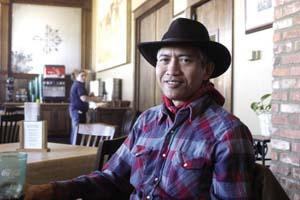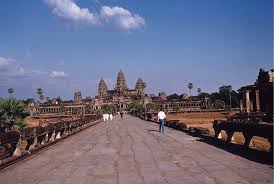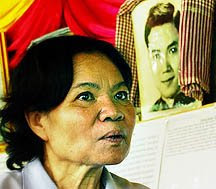By Heng Reaksmey, VOA Khmer
Original report from Phnom Penh
15 May 2009

The course was designed to instruct Cambodian security personnel in properly investigating a post-blast crime scene involving bombs or improvised explosive devices.
Twenty-eight students from the police, military police, national counterterrorism committee and counterterrorism special forces attended the course.
Cambodia is a willing participant in the US’s regional counterterrorism efforts. The country has a small Muslim population, and in 2003 was found to have harbored Hambali, the former head of Jemaah Islamiyah, the Islamic extremist group responsible for the 2002 Bali bombings.
The FBI maintains a legal office at the US Embassy in Phnom Penh.
Laro Tan, the FBI’s legal attaché in Cambodia, told reporters after closing training that the US investigation agency had provided technical training on researching evidence of blasts.
Hav Lay, a police officer at the counterterrorism office in Phnom Penh, said he had learned to gather evidence and intelligence at crime scenes.
Better training can improve prosecutions based on evidence obtained at crime scenes and would help Cambodian investigations meet US court standards, the embassy said in a statement.






 A boy shows off a rat he caught at Khos Thom district in Kandal province, 65km (40 miles) south of Phnom Penh near the Cambodia-Vietnam border, May 15 ,2009. REUTERS/Chor Sokunthea
A boy shows off a rat he caught at Khos Thom district in Kandal province, 65km (40 miles) south of Phnom Penh near the Cambodia-Vietnam border, May 15 ,2009. REUTERS/Chor Sokunthea





